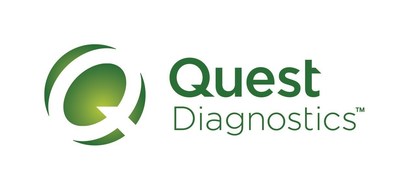Oncologists Report Seeing More Advanced Cancers and Say Current Tests Are Not Catching Cancer Recurrence Early Enough, New Quest Diagnostics Report Finds
Oncologists Report Seeing More Advanced Cancers and Say Current Tests Are Not Catching Cancer Recurrence Early Enough, New Quest Diagnostics Report Finds |
| [13-May-2025] |
SECAUCUS, N.J., May 13, 2025 /PRNewswire/ -- Oncologists feel they are seeing more and more patients with advanced cancers, say screening barriers are the leading reason why, and worry that current tests may not catch cancer recurrence early enough, according to a new report, "The Cancer Paradox: Oncologists' Perspectives on Barriers to Advanced Cancer Care and Recurrence Monitoring." To access the full report, click here. Based on a survey conducted by The Harris Poll on behalf of Quest Diagnostics (NYSE: DGX), a leading provider of diagnostic information services, the new report highlights perspectives of medical and surgical oncologists about the prevalence of advanced-stage cancers, the anxieties and barriers they believe patients face in accessing care, and the need for better post-treatment tools. It also provides novel insights into the perceptions of oncologists of an emerging area of clinical testing: ctDNA minimal residual disease (MRD) blood tests to aid in monitoring for residual or recurring cancer in patients treated for solid tumors. Quest Diagnostics launched its first ctDNA MRD test, Haystack MRD™, earlier this year. "We call it the cancer paradox: As medical advances improve longevity, more patients than ever face the looming risk of cancer recurrence — and the anxieties and challenges that go with it," said board-certified oncologist Yuri A. Fesko, M.D., senior vice president and chief medical officer, Quest Diagnostics. "Our new survey reveals the unique challenges oncologists face at a time when an unprecedented number of Americans are alive following cancer treatment but for whom the specter of recurrence remains a real concern for both the patient and the provider." Despite new treatments, new cancer cases in the U.S. are expected to cross the 2 million mark in 2025 for the second year in a row and the number of survivors is expected to rise from 18.1 million in 2020 to 26 million by 2040.i, ii Cancer recurrence varies by type and stage, but as many as 20-40% of the four most common solid tumor cancers — breast, colorectal, lung and prostate — recur after surgery.iii Key survey findings:
Oncologists Value ctDNA MRD Tests but Cite Barriers to Adoption Yet, oncologists expressed concerns about these traditional methods. Among oncologists whose patients' recurrence was missed in an earlier stage, half (50%) said imaging tests not detecting recurrence early enough was among the primary reasons for why cancer recurrence is typically missed. By comparison, nearly all oncologists (96%) said MRD testing has the potential to identify cancer recurrence earlier than other current methods, with 89% saying test sensitivity to accurately detect residual disease/recurrence as early as possible is one of the most important features of MRD tests. "We were struck by how many oncologists cited the limitations of imaging in detecting cancer recurrence early," said Dan Edelstein, vice president, general manager and co-founder of Haystack Oncology, a Quest Diagnostics company. "There's a clear desire for more sensitive tools, and oncologists increasingly see high-performance ctDNA blood tests as a promising solution for earlier detection of residual or recurrent cancer." Nearly nine in 10 oncologists (88%) agree that MRD testing should be incorporated into the standard of care for cancer-recurrence follow-up monitoring. However, over half say they would be more likely to start, continue, or restart recommending MRD tests if they had more clinical evidence to support effectiveness (61%), were in clinical guidelines (64%), and have expanded insurance or reimbursement coverage (56%). A study by researchers at Memorial Sloan Kettering Cancer Study published in The New England Journal of Medicine (NEJM) in April 2025 found that the Haystack MRD test was a "reliable liquid biopsy surrogate" for tissue biopsy results in assessing efficacy of an immunotherapy that successfully treated 80% of patients with several types of solid tumors without surgery, radiation or chemotherapy. The median time for the Haystack MRD test to identify complete response to the immunotherapy was 1.4 months, faster than PET imaging or endoscopy (both 6.1 months). The survey also polled oncologists on their preferences for accessing laboratory tests: 71% said they prefer to work with a single laboratory with a broad selection of cancer tests spanning the care continuum versus several labs that each focus on one portion of the patient's journey. Study Methodology About Haystack MRD™ About Quest Diagnostics i Siegel RL, Kratzer TB, Giaquinto AN, Sung H, Jemal A. Cancer statistics, 2025. CA Cancer J Clin. 2025;75(1):7–33. doi:10.3322/caac.21871.
SOURCE Quest Diagnostics | ||
Company Codes: NYSE:DGX |





















